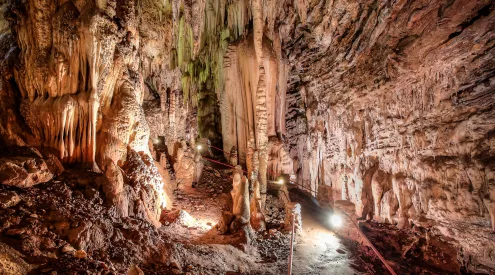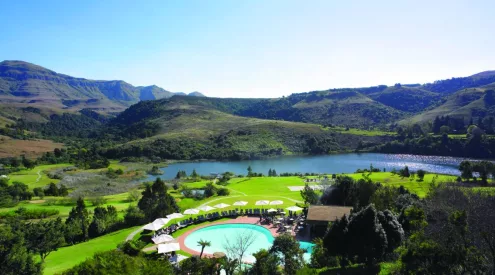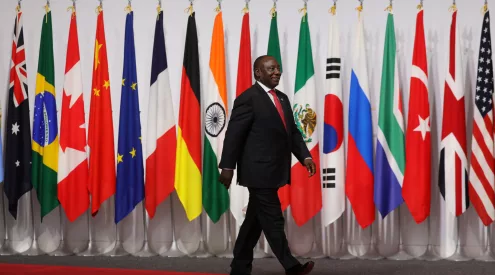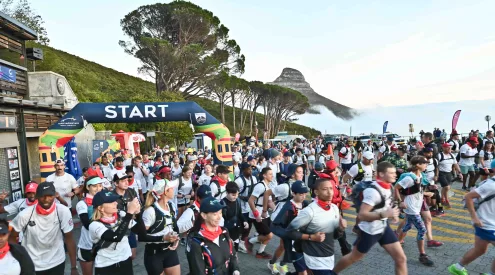I have many, many favourite festivals, and asking me to choose between them is akin to having a preferred child. However, Bushfire Festival in Swaziland has a particular sparkle to it. It’s just… special. Here are five reasons why every other music festival has something to learn from this little gem in the Swazi countryside.
Also read: why you can’t miss Bushfire festival 2015
1. The landscape
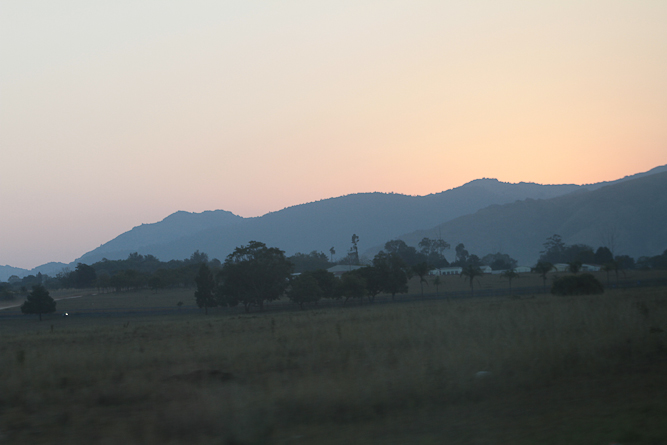
Sunset from the main stage. Photo by Lauren Edwards
It might just be that Bushfire is so damn good-looking. It’s hosted by House on Fire, a venue set amongst sugarcane fields, with blue mountains in the background haze. House on Fire is quite eccentric, to begin with. You can find art hiding all over the place there: even the walls have poems written into them.
2. The inclusivity

Photo by Lauren Edwards
At Bushfire, everyone is made to feel at home. Boisterous teenagers sneaking some booze, packs of dusty children, old folks soaking up the sunset, Swazis, foreigners… Everyone’s there. There’s a sense of community unlike anything I’ve felt at other festivals (with perhaps one notable exception: AfrikaBurn).
3. Non-profit
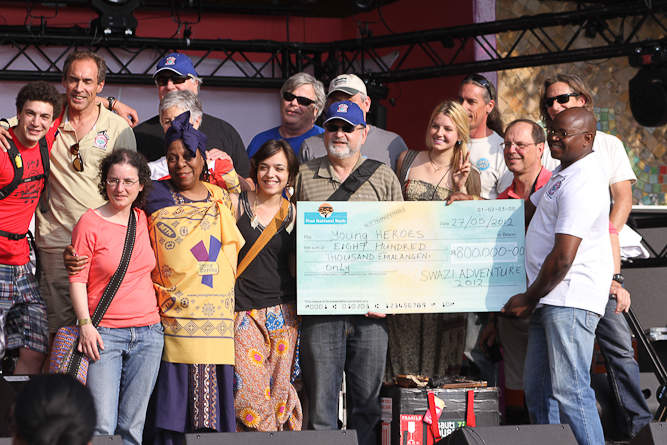
800 000 emalangeni was raised for Young Heroes in 2012. Photo courtesy of Lauren Edwards
After spending all year planning and organising the Swazi event of the year, the top organisers walk away with… peanuts. It’s a non-profit event, supported largely by volunteers because 100% of the profits go to Young Heroes, an organisation which supports child-headed households. Sadly, these are increasing in Swaziland, because of the prevalence of HIV/Aids. Bushfire also pushes a heavy safe-sex agenda: there are condoms in all the bathrooms, and the MCs throw in some HIV-related statistics or facts before introducing the next artist. It’s great to be having so much fun in a context that contributes to the future of Swaziland.
4. The music
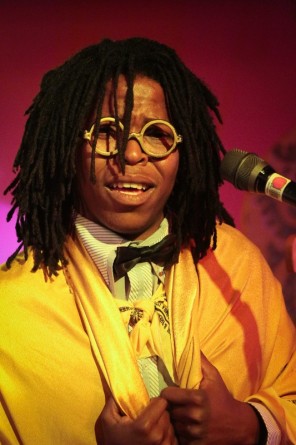
Siyabonga Mthembu of The Brother Moves On, in character as Mr Gold. Photo by Lauren Edwards
If you’re passionate about African music, this festival is one that you really can’t miss. The selection is, to say the least, broad: last year showcased Bholoja’s particular brand of Swazi Soul, mbira-playing jazz-weirdness from the Japanese band Mr Sakitumi, funky rock from the awesome Nancy G and the Human Family, and Saul Williams, an (American) spoken word hiphop artist, beating a huge drum.
South African musicians will be there in full force this year, but there are also artists from Reunion, Mozambique, Zimbabwe and (naturally) Swaziland attending.
Make sure you’re front and centre for The Brother Moves On – they’ll be attending again this year, and their brand of intelligent, critical, piss-taking musical performance art is not to be missed. It’s future-of-South-African-music stuff, and writing about them without using the word “discourse” is difficult. You will dance harder than you’ve ever danced before, and yet find little thought-questions sprouting from their lyrics in your brain days later.
5. Swazi people
Last year, I arrived in Swaziland at the tail-end of my romance with Maputo. The corrupt traffic cops and endless maze of one-way streets had eclipsed the memory of coconuts and white sands in Vilankulo, and I was glad to have the big city behind me. The difference, when crossing the border into Swaziland, was palpable: it’s pecked clean. Tractors glide across immaculate fields. Men and women with scythes were chopping grass high into the afternoon sunshine next to the highway, leaving golden piles of straw. The eyes of the cops didn’t glitter when they smelt the fumes of gullibility streaming from the car. The smiles seemed wider.
This first impression was corroborated, again and again, by every other interaction we had with Swazis. From helping us find accommodation to simply chatting over a beer, Swaziland seems to have a national culture of friendliness.
If you’re going to be joining me in celebrating it this year, tweet me @KatiAuld or leave a comment below and visit www.bush-fire.com for all the info you’ll need about the event.
See more of Lauren Edwards’ Photography here.




